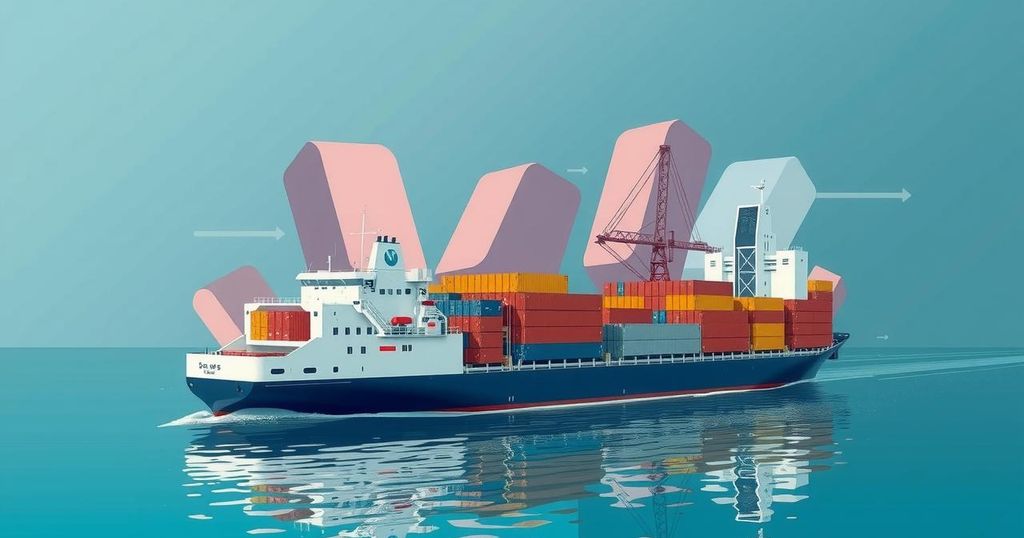Ecuador’s President Daniel Noboa has increased tariffs on Mexican imports to 27% as part of a strategy to support local manufacturing and align with U.S. policies. This decision follows a diplomatic dispute with Mexico and coincides with a proposal by Trump to impose tariffs on Mexico while negotiations are underway regarding immigration issues. Trade between the two countries is minimal, representing less than 1% of Mexico’s total exports.
Ecuadorian President Daniel Noboa announced on Monday that tariffs on Mexican imports would be increased to 27%, a move reminiscent of the trade policies of former U.S. President Donald Trump. This decision aims to support domestic manufacturers while also presumably trying to gain support from Washington amidst a broader diplomatic context. Noboa’s announcement aligns with Trump’s recent proposal of imposing 25% tariffs on Mexico, though these tariffs have currently been suspended to facilitate negotiations over immigration and fentanyl smuggling concerns.
This tariff increase comes in the backdrop of a significant diplomatic rift between Ecuador and Mexico. Last year, Ecuadorian police forcibly entered the Mexican Embassy to arrest former Vice President Jorge Glas, leading Mexico to sever diplomatic ties. While Ecuador claims Glas was wanted for fraud, it also accused Mexico of wrongly providing him with political asylum.
Despite the current tensions, trade between Ecuador and Mexico remains limited, constituting less than 1% of Mexico’s overall exports. Noboa, who is in the midst of a re-election campaign, hopes that this policy will resonate with voters while also reinforcing his connection to U.S. political realities. He attended Trump’s inauguration, viewing the former president’s victory as beneficial for Latin America.
Noboa’s tariff announcement can be seen as an attempt to bolster local industry while also positioning Ecuador within a broader geopolitical narrative concerning U.S.-Mexico relations. The request from Trump for Mexico to take stronger action against illegal immigration and drug trafficking underlines the complex relationship dynamics that are influencing Noboa’s new trade policy.
Ecuador’s political landscape has been markedly influenced by its relationship with the United States, particularly under the Trump administration. The announcement of these tariffs coincides with Ecuador’s ongoing diplomatic dispute with Mexico, previously exacerbated by the arrest of Jorge Glas. Consequently, trade relations between the two nations remain strained, despite the minimal economic impact these tariffs may pose given the size of their trade volumes. This context is crucial in understanding President Noboa’s strategic decisions regarding tariffs and international alliances.
In conclusion, President Daniel Noboa’s decision to impose tariffs on Mexican imports reflects both domestic economic strategies and international political considerations. This move echoes Trump’s policies, amidst ongoing tensions with Mexico over diplomatic disputes. While aiming to support local manufacturers, the broader implications of these tariffs highlight Ecuador’s attempts to navigate complex bilateral relationships while influencing domestic electoral outcomes.
Original Source: apnews.com






